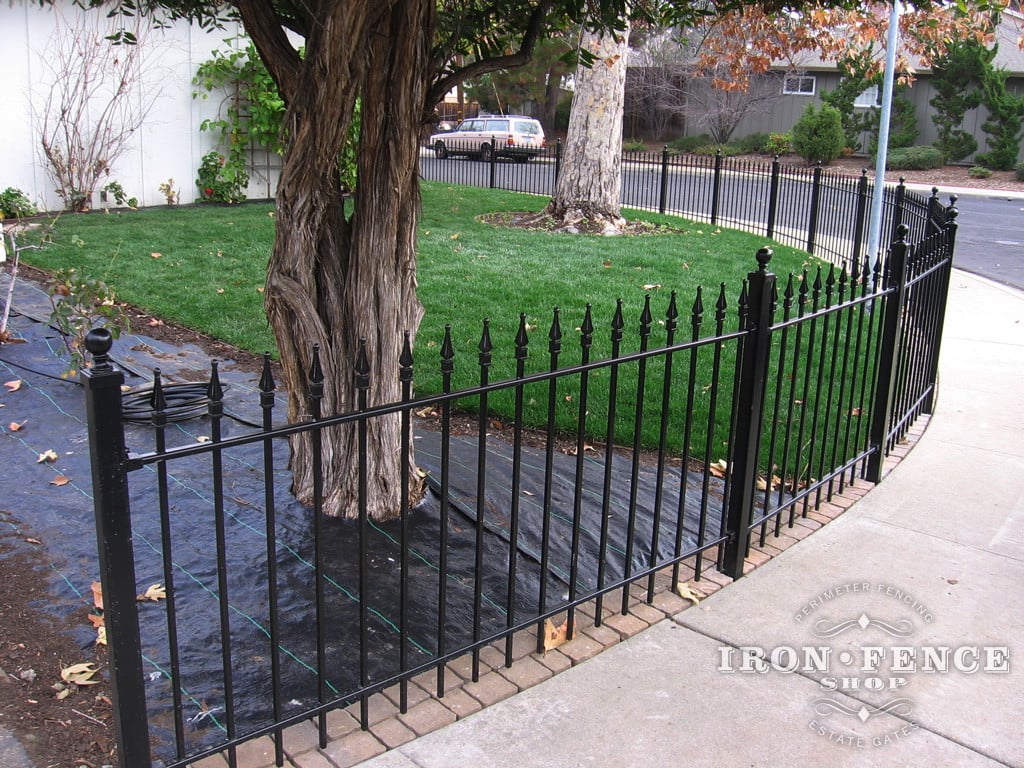
Not all wrought iron fence installations follow straight lines and 90 degree turns. So what do you do when you need your iron fence panels to follow a curve, radius or angle across? Read on to see how to handle this type of installation.
While a curved and angled section may seem vastly different, they are actually handled in the same way. Many folks think that curved areas require curved fence panels. Unfortunately, curved fence panels are very difficult to make properly and deform the punches in the rail. Luckily, there is a way to follow curvatures and angles by use of an angle bracket.
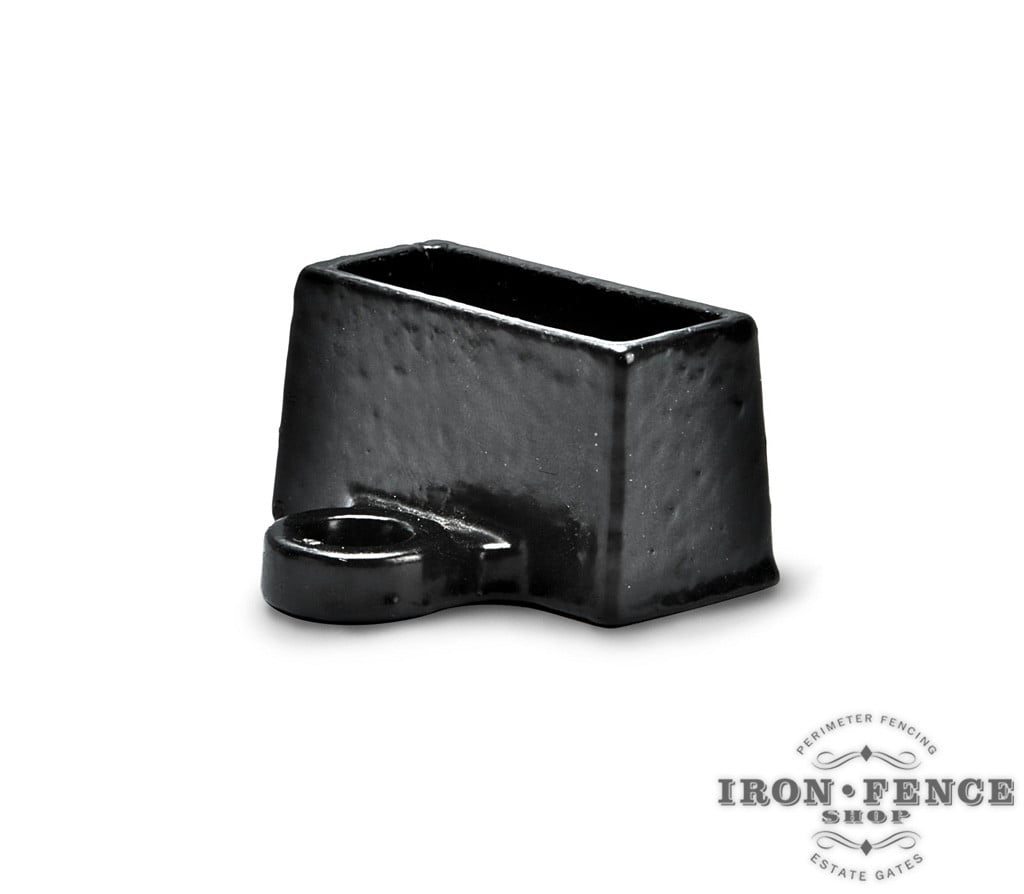
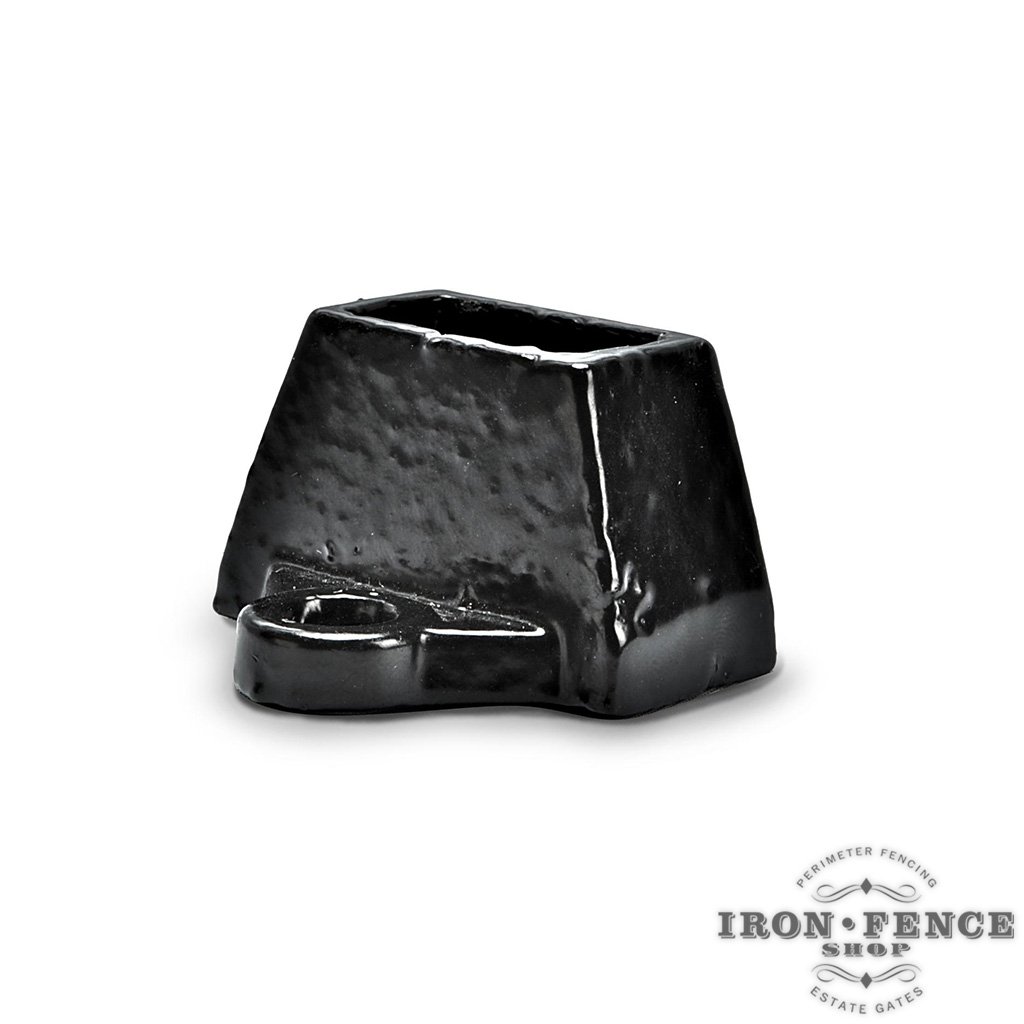
The standard iron fence bracket fits the horizontal fence panel railing snugly. The angled bracket is fluted at the rear and allows for an 18 degree deviation off 90 degrees. If you need more than an 18 degree angle or deviation, you can modify the angle bracket by grinding back one side and drilling a hole in top to secure the rail to the bracket and shown below.
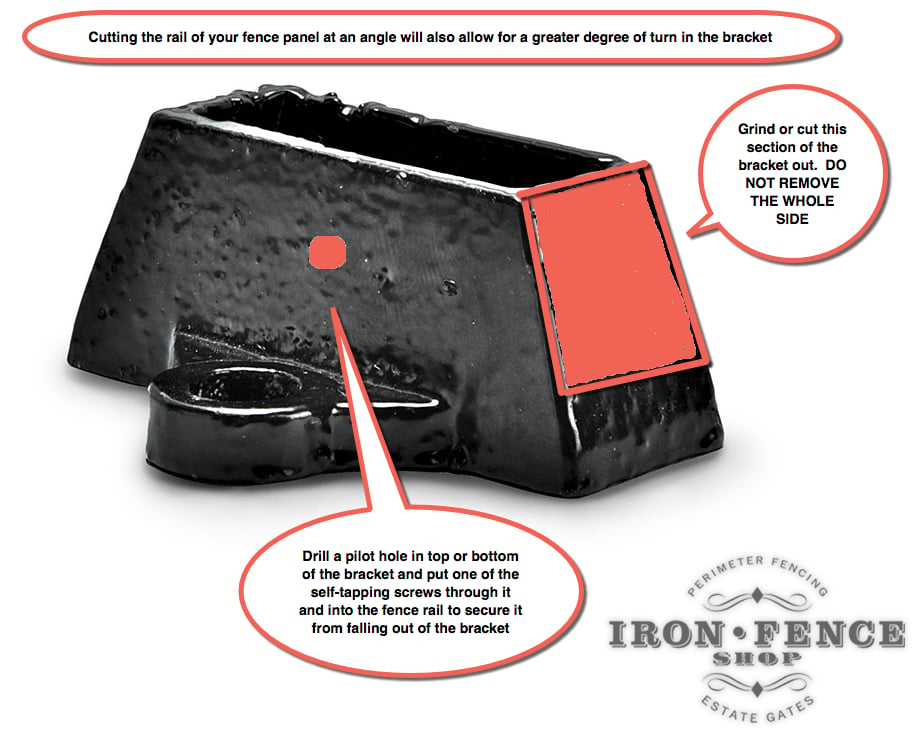
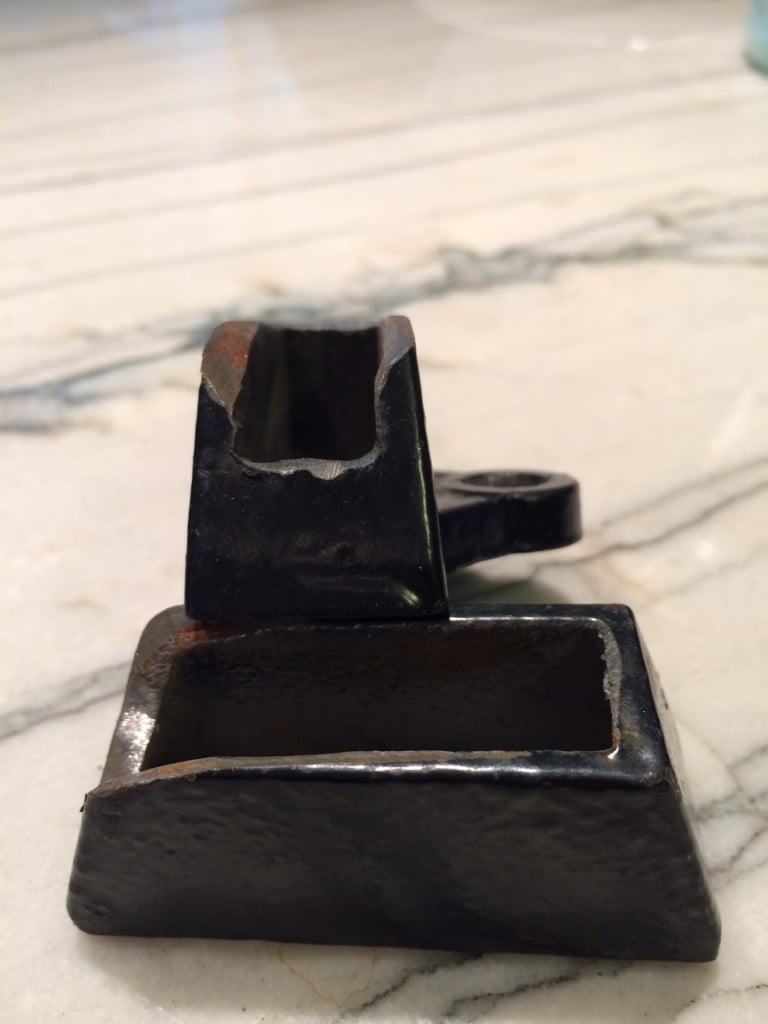
So how exactly do you install a straight iron fence along a curved area, radius or angle? you will essentially ‘walk’ the panel in straight sections around the curve angling them as you go. If you look at the picture below, you can see the desired curvature for the fence extension and how we would ‘walk’ the panels along the curve with straight sections of fence.
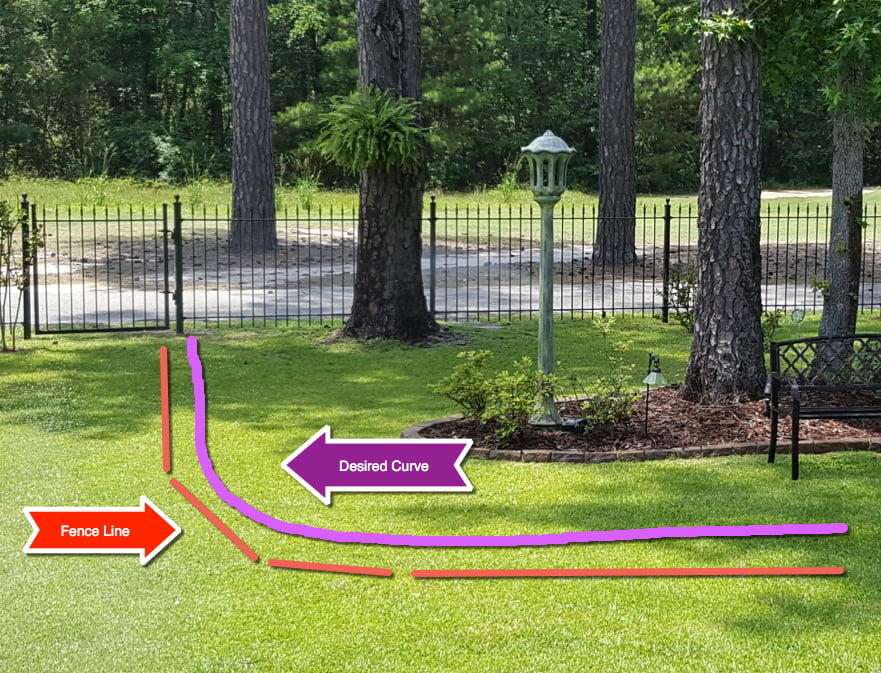
The easiest way I can think to explain this is to think about how a hexagonal stop sign essentially makes a circle with square corners.

Depending on how long the curve or angle is, you may need to trim some of your panels to a shorter width. For instance, if you have a short 16 ft area with a tight curve, you may need to trim your panels down to 4ft wide and employ more posts and angle brackets. It depends on the exact line you are trying to follow.
One way to ‘test’ it out without buying the fence is to use cut sections of lumber. Start with a full 8ft wide iron fence panel width. Can you lay 8ft long pieces of lumber in the grass and follow the curve? If not, try cutting some lumber to 6ft or 4ft wide sections to see the best way to ‘walk’ the curve with the fence panels. If in doubt, its better to pull away from the curve some rather than trimming panels too narrow with a bunch of posts which will pull your eye to that section and may not look as you hoped. Digging post holes super close to each other can be difficult too.
Here are a couple examples of our Stronghold Iron fence angled and curved around non-standard sections so you can see how the angle brackets and fence look:
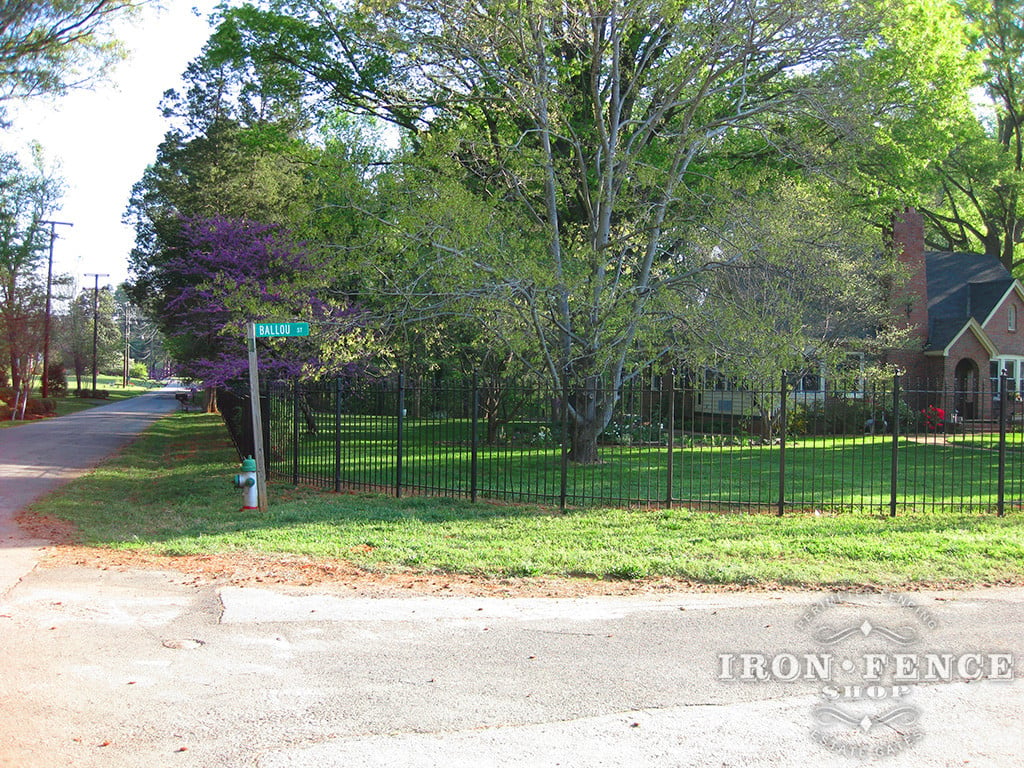

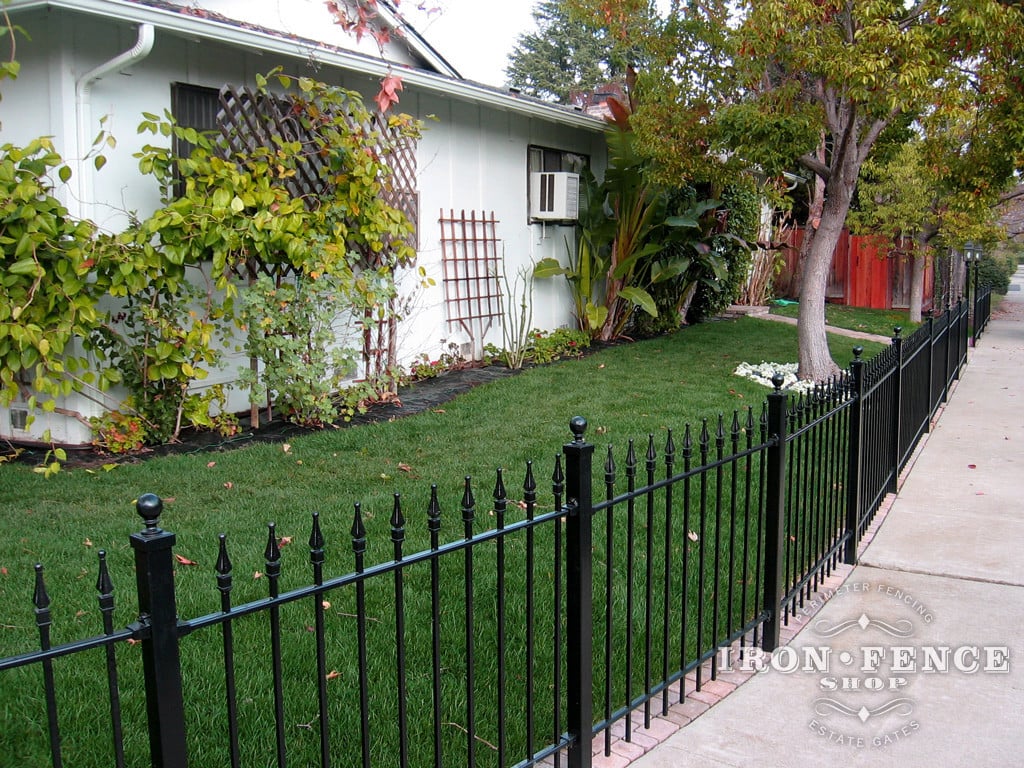
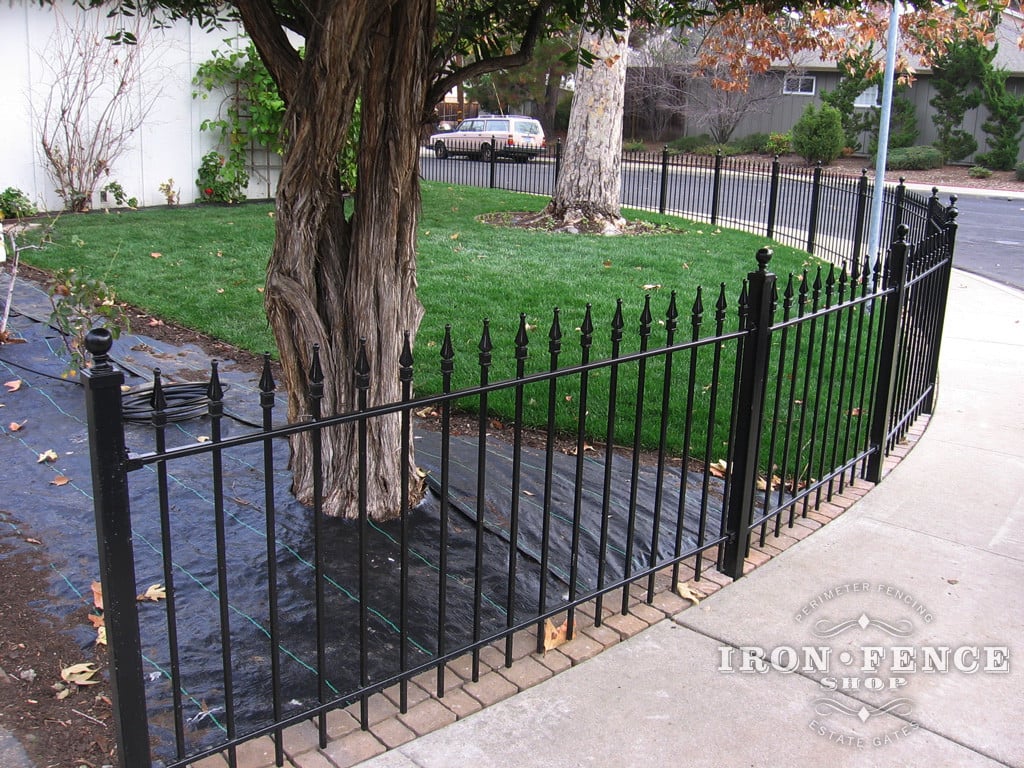
If you have any questions on how to tackle a radius, curved or angled section in your project; give us a call or shoot us an email and we would be happy to help guide you along the way!
 Free Shipping over $5,000
Free Shipping over $5,000
 15 Years in Business
15 Years in Business
 18mo No Interest Financing
18mo No Interest Financing


